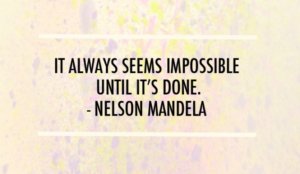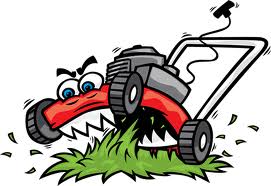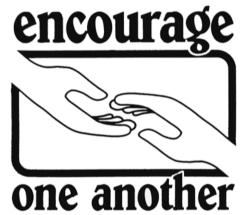 “In writing, habit seems to be a much stronger force than either willpower or inspiration.” ~~John Steinbeck.
“In writing, habit seems to be a much stronger force than either willpower or inspiration.” ~~John Steinbeck.
For several years, I’ve had a list of “The Seven Essential Habits of a Working Writer” scribbled on a scrap of paper and pinned to my bulletin board. I had copied the list from a book by author Jim Denney, who said, “Habits are constant. Inspiration is variable—it comes and goes. That’s why habits are better than inspiration. It is habit, not inspiration, that builds writing careers.”
I want to elaborate on that list, explaining why each habit is important—and how to implement that habit in your daily writing life.
A Writer Writes
You must begin to think like a writer—and that will lead you to acting like a writer. Then you’ll build the habits of a writer—and eventually you will get to enjoy the benefits of being a writer.
Seven Essential Habits of a Working Writer are:
- Write Daily
- Cultivate the Art of Solitude Amid Distractions
- Write Quickly and With Intensity
- Set Ambitious But Achievable Goals
- Focus!
- Finish What You Start and Submit What You Finish
- Believe You Can
With all of these writing habits firmly in place, you can’t help but succeed!
Habit #1: Write Daily
Writers write. It doesn’t get more basic than that. If your dream is to be a full-time writer someday, you’ll need to develop the habit of writing every day. Habits are powerful, and once writing becomes as habitual as brushing your teeth, your productivity will go through the roof. And more writing translates into better writing. It takes practice like any other skill, and cliché or not, practice makes perfect.
Grab the Time
If you’re still working at your day job (whether outside the home or at home with children), you’ll find it more difficult to carve out a daily writing time. If that’s your situation, you must learn to grab whatever bits and pieces of time you have available. (I know this system works. I wrote my first five middle-grade novels with a newborn, toddler and preschooler underfoot—writing in tiny blocks of time like this.)
Here’s how it goes. Let’s say you have a story or book to write, but you don’t have big chunks of free time. Instead you make a commitment to grab just ten or fifteen minutes every day to work on it. Everyone can carve fifteen minutes out of each day to make some progress. You make a commitment to yourself that your head won’t hit the pillow for the night until you’ve spent at least fifteen minutes on your project. Those bits of time add up. Just fifteen minutes a day is 91.25 hours in a year—more than two full 40-hour work weeks.
It’s All in Your Head
The second reason this principle works is that it keeps your head in the game every day. You don’t just need time to write. You need head space that is free, even if it’s only one tiny corner of your brain reserved for thinking about your writing. If you don’t do it every day, other things quickly intrude and finally crowd out that head space reserved for your writing. Then you have to start over every few weeks or months when you get back to your project.
With writing for fifteen minutes each day, you never lose momentum or have to waste time trying to remember where you left off and who the heck this character is. Writing daily makes each fifteen-minute session its most productive and effective.
Like most of us, once you get rolling, the fifteen minutes often turns into much more if you’re not interrupted. It will build a great daily habit so that when you do have more time—maybe even eventually going full-time—your daily writing habit will already be cemented into your routine.
Procrastination a Problem?
Working writers have to be self-starters. If you have trouble doing even fifteen minutes a day, you’ve probably got a procrastination problem or writer’s block. For several articles on such challenges, see the ten articles in Writer’s First Aid on “Getting Started.”
Habit #2: Solitude Amid Distractions
Solitude is the best preparation for writing, and being alone to prepare one’s mind to write is lovely. But it’s not always possible, and you don’t want to be dependent on being alone in order to write. If I had decided I must have total “alone time” to write, my career would have been delayed at least a decade (until my youngest child started school).
Instead, develop the second habit of working writers—and cultivate the art of solitude amid distractions.
The Ideal versus the Real
Some writers have solitude all day long. Someday, after the kids are grown, or you quit your day job, or you get an assistant to handle your PR and marketing, you might have solitude without distractions. Frankly, though, that is NOT the life of 90% of writers. However, if you work at it, it’s possible to develop the feeling and benefits of solitude even when surrounded by people and interruptions. Rather than trying desperately to create a silent outer environment for yourself, it’s more practical and helpful to develop a kind of solitude, or quiet inner space, in your mind. That “room of your own” may need to be within, at least in the beginning.
The Eye of the Hurricane
I wrote with small children in the room or nearby for many years. I stopped if they truly needed me for something, but often they were content to play in the same room or the play room by my office. Still, even when children are playing amicably, there’s lots of noise.
You have to find ways to enter the eye of the hurricane, so to speak, that spot in the middle of chaos where it’s still and you can hear yourself think. It isn’t second nature to us, but it can be done. As Isaac Asimov said, “We must find our solitude within. Regardless of the noise and distractions that swirl around us, we must be undistractable.”
Change the Things You Can First
To help yourself find that quiet place inside where you can concentrate on your writing amid distractions, be sure you’re first doing all you can to minimize the interruptions. There’s no point in wasting energy overcoming something that you could simply get rid of. Some distractions you can quickly eliminate. For example, if the Internet is a big lure, close down your email and get off line instead of mentally fighting the lure of Facebook and YouTube videos. (I remove my laptop—the computer with Internet access—to a completely different room while I write.) For many more practical ideas, see “Dealing with Distractions” in Writer’s First Aid.
Finding your calm center takes practice, but it can be done. I wrote my first novels with small children around, and I wouldn’t have had it any other way either. They were both my joy and my inspiration. I didn’t want to remove myself from them—but I needed to be able to work within the chaos too.
Start to practice now. To begin, write just five minutes at a time. Your ability to concentrate—and find solitude amid distractions—will grow.
Habit #3: Write Quickly and with Emotional Intensity
Many writers tell me their goal is to write full-time, to either make a living at it or to supplement their family income. For that to happen, you must move from being a hobbyist to being a “working writer.” You will need to write with two things simultaneously: speed and emotion.
Two-Part Goal
First, let’s talk about speed. It has to do with momentum, with pushing yourself to get the words written. Professional working writers almost all write quickly, moving forward with their drafts instead of stopping continually to re-read sections or obsess over details or revise the same section several times. Just get your first draft down as fast as you can.
You’ve heard about being “in the flow” when writing. It’s that marvelous time when you’re writing with speed and intensity and lose track of time as the words pour out. It’s difficult to reach this “flow” state where you’re lost in time if you constantly jerk yourself out of the story and go back to something previously written. When writing a rough draft, keep moving ahead. This will help you streamline the writing process to make the most of whatever writing time you have.
Emotional Intensity
The second factor in Habit #3 is intensity. What difference does it make if you write with passion or power? For one thing, it gets you involved in your story or message and helps create that “flow state”. (Hint: choose a topic that you truly care about.) Also emotional intensity makes a powerful impact on the editor who reads your work. (Hint #2: if you don’t feel the intensity while you’re writing it, the editor won’t feel it when he’s reading it.)
Emotional intensity reaches readers—and they spread the word in good old-fashioned word-of-mouth advertising (or new-fashioned word-of-mouth via Facebook and Twitter.)
If you’re able to write fast, but you feel you lack the emotional intensity he’s talking about, get to know your own passions better. (For help with identifying your skills and passions, see the inventory called “Getting to Know You…” in Writer’s First Aid.)
Habit #4: Set Ambitious but Achievable Goals
“If we did all the things we are capable of doing, we would literally astound ourselves.” ~~Thomas Edison
Goal-setting is a must-have habit if you want to be a working writer, someone who is going beyond the hobby stage in writing. Time and again it’s been proven that you increase your chances of achieving your goals immeasurably if you write them down and post them in a prominent spot so you read them frequently.
Break these written goals into long-term, mid-term, and short-term objectives. Long-term goals (write a bestseller, sell a series) define what we hope to eventually achieve. Mid–term goals describe specific projects we are working on right now (under contract or with our own self-imposed deadlines.) This includes deadlines for completing them. Short–term goals define the daily and weekly tasks we must achieve (write five pages daily, mail three queries by Friday) in order to reach our mid-range goals. Note: these are your production goals, and without them, your other goals will NOT be reached.
Give yourself permission to dream big. Your goals need to inspire you. As Andrew Carnegie once said, “If you want to be happy, set a goal that commands your thoughts, liberates your energy, and inspires your hopes.” I will say it again: dream big!
Out of Sight, Out of Mind
One of the biggest problems with goal-setting is that we tend to write the goals down and never (or rarely) look at them again. If they aren’t in the forefront of your mind, they’re so easy to forget.
Jack Canfield (co-creator of the Chicken Soup for the Soul books) suggests re-reading your goals out loud three times a day. As you do, close your eyes and picture each goal as if it were already accomplished. Keeping the idea fresh in your mind greatly increases your chances of following through to achieve your goals.
How can you remember to do this? You might put your goal list on a pack of cards you can carry with you. Or…“Put a list of your goals in your daily planner or your calendar system,” Canfield advises. “You can also create a pop-up or screen saver on your computer that lists your goals. The objective is to constantly keep your goals in front of you.”
Begin Now
I’d encourage you to take time and write down at least one long-term, mid-term, and short-term goal. The short one needs to support or help you achieve the mid-term goal, and both goals need to support your long-term goal. As you work through these “seven essential habits for working writers,” apply the habits to your written goals.
Habit #5: Focus!
All the previous habits won’t help much if you can’t focus on your work when you sit down at the keyboard. Each previous habit, however, will help you focus.
For example, if you don’t sit down daily for at least fifteen minutes to write (Habit #1), you lose track of your story. You lose the focus after a long break and often have to start over. Setting short-term measurable goals (Habit #4) creates a series of small deadlines, allowing you to just focus on today’s tiny portion to accomplish. And learning how to concentrate amid distractions (Habit #2) will help you zero in on today’s task.
Ready, Aim, Focus!
I used to have a camera with a focusing lens. By rotating the lens barrel, I could focus on the child in the foreground, or the dog sleeping in the background, or the mountain in the distance. As I focused on each separate thing, the other parts of the picture went out of focus.
Writers must be able to focus like that with their manuscripts, both to avoid being overwhelmed and in order to get the job done. We must be able to focus on big things in the background (like the plot or character emotion arcs) or things in the middle (like making sure each scene has the necessary dramatic elements) and close-ups (tightening this paragraph, writing a cliffhanger chapter ending.) If you try to focus on and fix everything at once, you’ll feel overwhelmed and freeze.
Need Some Help Focusing?
We live in a society that bombards us with information, demands, and media overload to add to personal schedules already full with family, day jobs, and all the things that add up to very busy lives. Being able to focus can be a real challenge.
First, figure out what is keeping you from being able to focus. Quite often it’s a simple thing. Perhaps the noisy neighbors in the apartment above you keep you from sleeping well or being able to concentrate. If so, buy a white noise machine, set it to crashing waves or rainfall, and turn it up until it drowns out your neighbors.
Maybe you can’t focus because your writing desk is covered with piles of things to do: the unfinished query to a magazine, the unfinished story for the contest, bills to pay, a writing magazine to study, and the note that says “BUY INK TODAY!” You can’t focus on your writing because you keep feeling like you should be doing something else. If so, clear your desk of the piles. Put them in the closet or on a bookshelf in plastic stackable trays. Get them out of your eyesight so you can focus on the writing task at hand.
Make a list of all the things (personal and professional) that you feel are hampering your ability to focus. Then set about dealing with each and every one.
Habit #6: Finish and Submit
Habit #6 is “Finish What You Start and Submit What You Finish.” Sounds pretty obvious, doesn’t it? If you want to become a working writer, either part-time or full-time, you have to finish your manuscripts, submit those manuscripts, and keep on submitting until they’re sold.
Unfinished Business
I know a couple of very fine writers who may never submit the novels they’ve been polishing for years. They endlessly fuss and obsess over their manuscripts. And it’s a real shame because those novels are wonderful. At some point, you need to say, “It’s finished!”
One caution: if you become careless, you might not do the necessary polishing that deep revisions call for. You might settle for a good enough manuscript, but not rise to the excellence you’re capable of. It makes no sense to spend weeks, months or even years writing a book and then, when finishing, to produce and submit a careless effort. Pay attention to detail. Do you very best right up to the end.
Finishing strong is something great athletes learn. Finishing strong is something writers also much learn.
It’s Finished—Then What?
Study the markets. Find publishers who publish the type of book you’ve written, and make a list. Research online to make sure the publishers you’ve listed are legitimate. (Just Google “XYZ Publisher scam” and “XYZ Publisher complaints” to find out.) Make sure you understand the difference between traditional publishers (who pay you) and vanity presses (who expect you to pay them to print your books.)
Make a list of at least half a dozen publishers where you could submit your manuscript. And when it comes back—all writers get some rejections—you send it out again. And again. That’s what working writers do!
Habit #7: Believe You Can
This last of the essential habits of a working writer might be the toughest one for you: Believe You Can.
Every writer doubts his ability at some point—and many successful, much-published writers deal with doubts about their writing abilities every single writing day. Those successful writers know a secret though.
They feel the doubt—and write anyway. That’s what they decide to do: sit down and write, whether they feel like it or not.
Act As If
Don’t wait until you have confidence in yourself to start writing. It simply doesn’t work like that. The confidence—the feelings of “Hey, I can do this!”—comes AFTER you start writing. Feelings follow behavior, not the other way around. Only when you act like a writer, will you truly feel like a writer. Writers write. Writers show up at the page and stay there, putting down one word after another. And at the end of each writing session, they believe a little more strongly that they can be writers. (For more help in this area, see “Who’s in Charge?” and “Voices of Self-Sabotage” in Writer’s First Aid.)
I hope you’ll keep this list of seven writing habits posted where you can see it—and read it—often. “Without these habits, how could you do anything but fail?” Jim Denney asks. “But with all of these habits firmly in place in your life, you can’t help but succeed.”
I couldn’t agree more. That’s the power of daily habits!
[Reposted from here.]
 I’ve tried very hard and written consistently during this summer, making good use of the time I’ve had between visiting company, having grandchildren overnight, taking trips, and attending birthday parties.
I’ve tried very hard and written consistently during this summer, making good use of the time I’ve had between visiting company, having grandchildren overnight, taking trips, and attending birthday parties.  Unless we distinguish between truth and the lies (and half-truths) we tell ourselves, we won’t make a lot of writing progress. That “honest introspection” comes first. Then, after admitting the truth, we can pursue solutions.
Unless we distinguish between truth and the lies (and half-truths) we tell ourselves, we won’t make a lot of writing progress. That “honest introspection” comes first. Then, after admitting the truth, we can pursue solutions. Is your amount of God-given writing talent a fixed quantity? We often hear that it is, but that you can study and practice to improve your writing skills. If that’s true, how would you respond to this email?
Is your amount of God-given writing talent a fixed quantity? We often hear that it is, but that you can study and practice to improve your writing skills. If that’s true, how would you respond to this email?




 Youth isn’t everything–not in physical endeavors, nor mental ones.
Youth isn’t everything–not in physical endeavors, nor mental ones.  The blog post earlier this week,
The blog post earlier this week,  The words of others do have an impact on us, whether positive or negative, so be aware of this. As much as possible, limit the time spent with the doom-and-gloom naysayers in your life (or don’t share your writing dreams with them).
The words of others do have an impact on us, whether positive or negative, so be aware of this. As much as possible, limit the time spent with the doom-and-gloom naysayers in your life (or don’t share your writing dreams with them).  On the flip side of this coin, make a concerted effort to find supportive friends. It doesn’t always have to be another writer who understands “writing issues,” but someone who will simply encourage your dreams. If you find an encouraging writer–or joy of joys, a whole critique group of writers!–consider yourself blessed. Hang onto them for dear life.
On the flip side of this coin, make a concerted effort to find supportive friends. It doesn’t always have to be another writer who understands “writing issues,” but someone who will simply encourage your dreams. If you find an encouraging writer–or joy of joys, a whole critique group of writers!–consider yourself blessed. Hang onto them for dear life.

